Though well known to British audiences for her excellent comedy roles on the television – with credits that range from the likes of Peep Show to The IT Crowd (not to mention a recurring cinematic role in the world of Bridget Jones), Dolly Wells has since taken the move across the Pond to start a new life in New York City. Since then she was an integral part into the excellent Can You Ever Forgive Me? and she’s sticking around in her (new) hometown for her writing and directing debut Good Posture. Though thankfully for us, she came back to London, and we had the pleasure of sitting down with the talented filmmaker to discuss her longstanding friendship with Emily Mortimer (who stars in the film), what inspired her to finally direct, and why we can learn so much from the youth of today.
Where did this idea spawn from – is it one that’s been with you a while? You get that feeling with bands who release their debut album that it’s a collection of all their songs they’ve had with them for years – was that the case for you?
It’s funny you ask it like that because you’ve changed my answer in your question, because the way it came about was that Jamie Adams, who is a director of improvised films that I’ve been in, said I should direct a film. I think he thought I’d improvise it but I wanted to write it. The first time he asked me I was too scared but I did a play and was the mother of Grace Van Patten and then he asked me again a year later and I said okay, because Maggie Monteith, who is a wonderful producer put the money together. So I put together something quickly and nervously because it was the first thing I’d written on my own, but although I say I’m not sure where it came from, I do know really, it’s like what you’re saying about a first album, they’re feelings that I’ve had for a long time, about myself in certain situations, like when I moved to New York six years ago, that feeling of just being lost and confused, and it’s a different feeling for me because I have children, and they had to go to school and I had to learn where the doctors were, and get on with life. Although I wrote the film quite quickly, they were ideas that I’d been thinking about for a long time, yeah.
I’m a big fan of Jamie’s work, do you think in some ways he made directing seem doable? He has this real DIY approach.
Yes. Coming from him to ask me, yes. Although I think our styles of filmmaking are completely different, I think coming from him did make it more feasible, yes. I love his passion, he’s really ballsy, he gets brilliant people to be in his films, and he’s open and artistic and brave, so yeah I do.
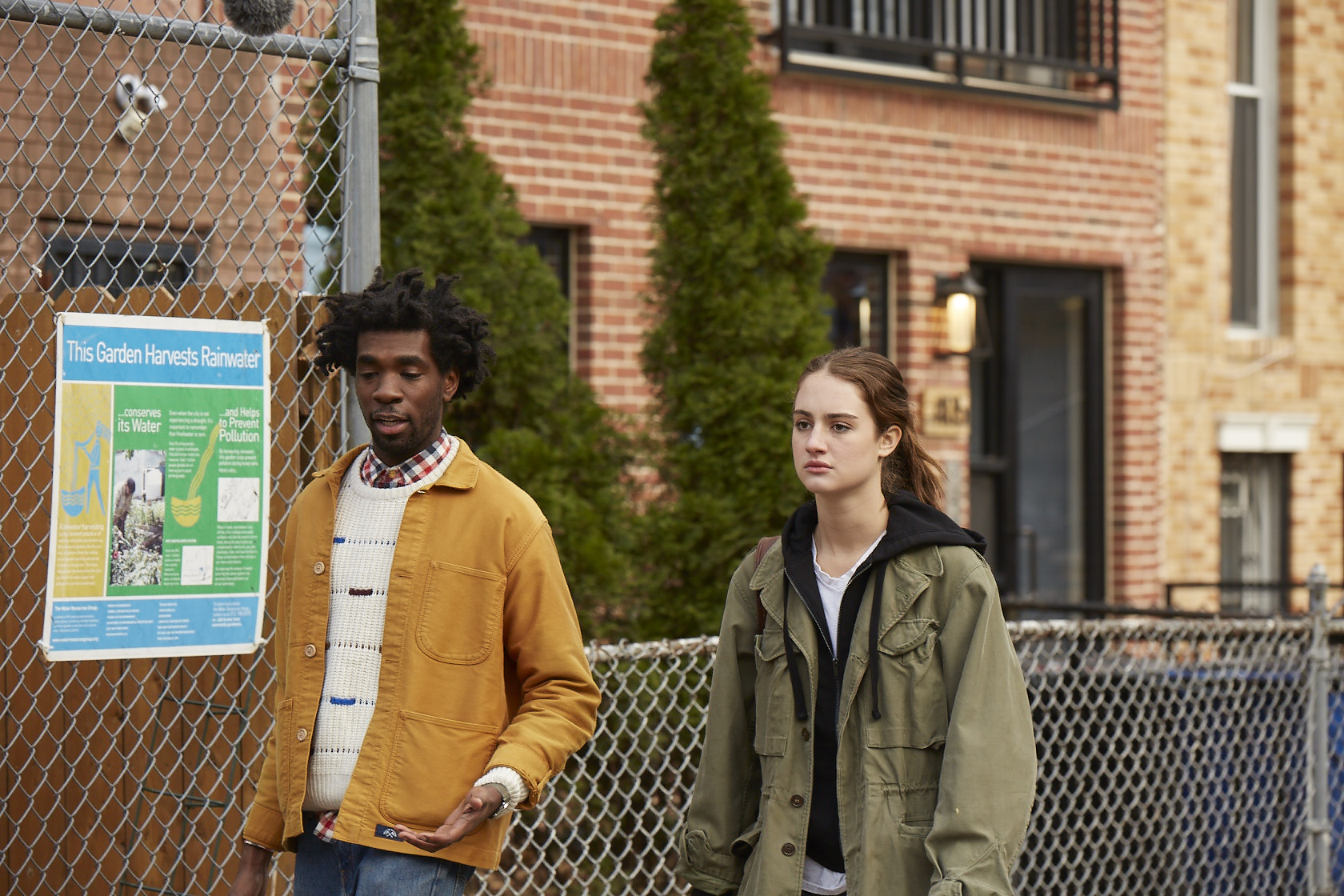
You’re tapping in to emotions that have been with you a long time, but moving to New York was more of a recent venture. How was it translating those emotions form your youth and moving them into a more recent setting?
When I moved to New York it was kind of like being a child again. It was a film that I didn’t feel that I could’ve made in England because I would feel like a 40 year old woman in England. Whereas moving to New York at that age, made me feel like a child because I was taking it all in. We speak the same language and London and New York are the major cities, but they are very, very different. I’ve just been away shooting in England and going back to New York you realise it’s a very extreme city. Greta Thunberg saying that thing about when she arrived off the boat and she noticed the smells and noise – there are incredible things about New York, an energy and excitement and there’s a feeling of needing to look out for each other because there’s no safety net like the NHS. But it hurts, it gets very cold in winter and very hot in the summer and you look at a homeless person thinking – you may not be alive tomorrow. There’s serious drug problems. It’s buzzing and throbbing and there’s a sense of community, and I love our neighbours, but also two days before I came here a man of 60 something, really high on drugs, tripped over and broke his nose and there was blood everywhere, and you’re reminded of the divide and what people have got and what people haven’t got, and a feeling that you can’t turn a blind eye, you have to have a sense of responsibility.
New York has a romanticism attached, built in some ways through cinema, it’s such a cinematic city, like you’ve walked onto a movie set. Has it lost that for you now, is it just home now?
No. I mean it is home, but I find the whole concept of home very confusing, My husband grew up in a small town in Cape Cod and made a beautiful documentary about it, and it’s his home, no question. Whereas I can’t define home so easily, what is home? Is it sitting with my family in the kitchen somewhere? Is it with my mother in Sussex? Or my sisters in Amsterdam? But it hasn’t lost its cinematic quality, no. I’ve been alive a long time and six years isn’t long. You walk around and there’s different iconic things to see.
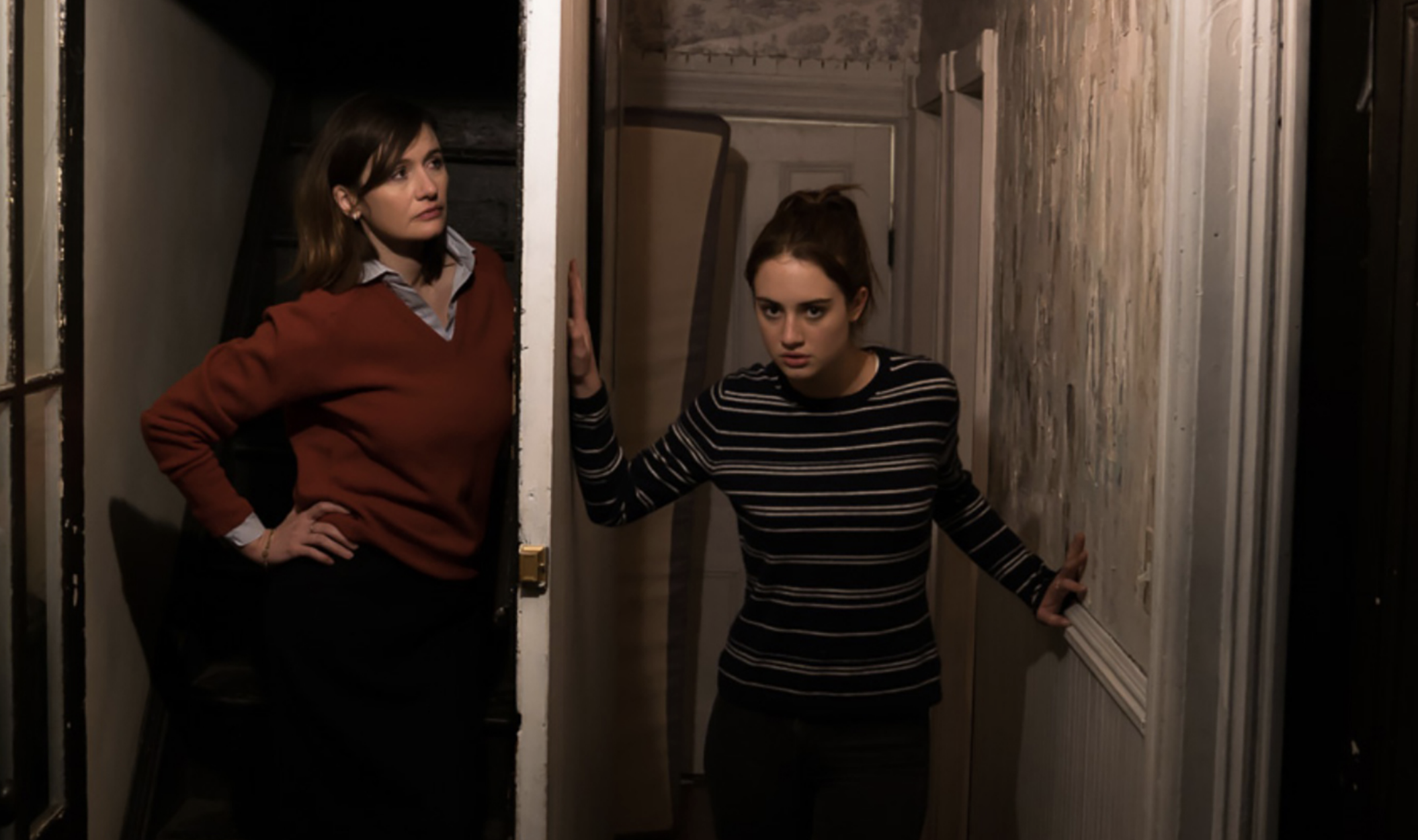
Can you see yourself being a writer or director for hire? Or are you somebody who really needs to do both simultaneously?
I would prefer to do that, yeah. But that doesn’t mean it wouldn’t be really enjoyable to direct an episode of something I love watching, to see if I could do it. Or to write something for somebody. So no I’m not against it. But I wouldn’t have been able to direct somebody else’s film in 12 days, or write somebody else’s film in four or five weeks. You just understand it, if you’ve got those time constraints, I knew all the cast. If I had been casting and I got one wrong, it would’ve messed up the whole thing, I was very lucky. The audition process was built on friendship, everybody in it was somebody that I really cared about, and they really cared about me, we’re friends, and you could feel that.
So tell me about your friendship with Emily Mortimer? You’ve been friends such a long time, did you feel there was always a creative spark, from a young age?
We met really young, and it was because her father knew my father socially. Em and I were like cousins until we were 21, but I do remember when we were eight or nine, I had a stage in my sitting room, which was just a step with curtains, and we set up a bar and said to everybody who was eating upstairs that we’d be downstairs doing Coronation Street if they wanted to come and watch us and just saying ‘I don’t really know Vera’. And that was it. We used to make each other laugh a lot and then when we got to about 21, she left Oxford and I left Manchester and we stayed up all night talking about boys who had been horrible to us, and actually it was funnier, the conversation we were having about these boys, and was more interesting than the boys themselves, and that was the beginning of us being inseparable.
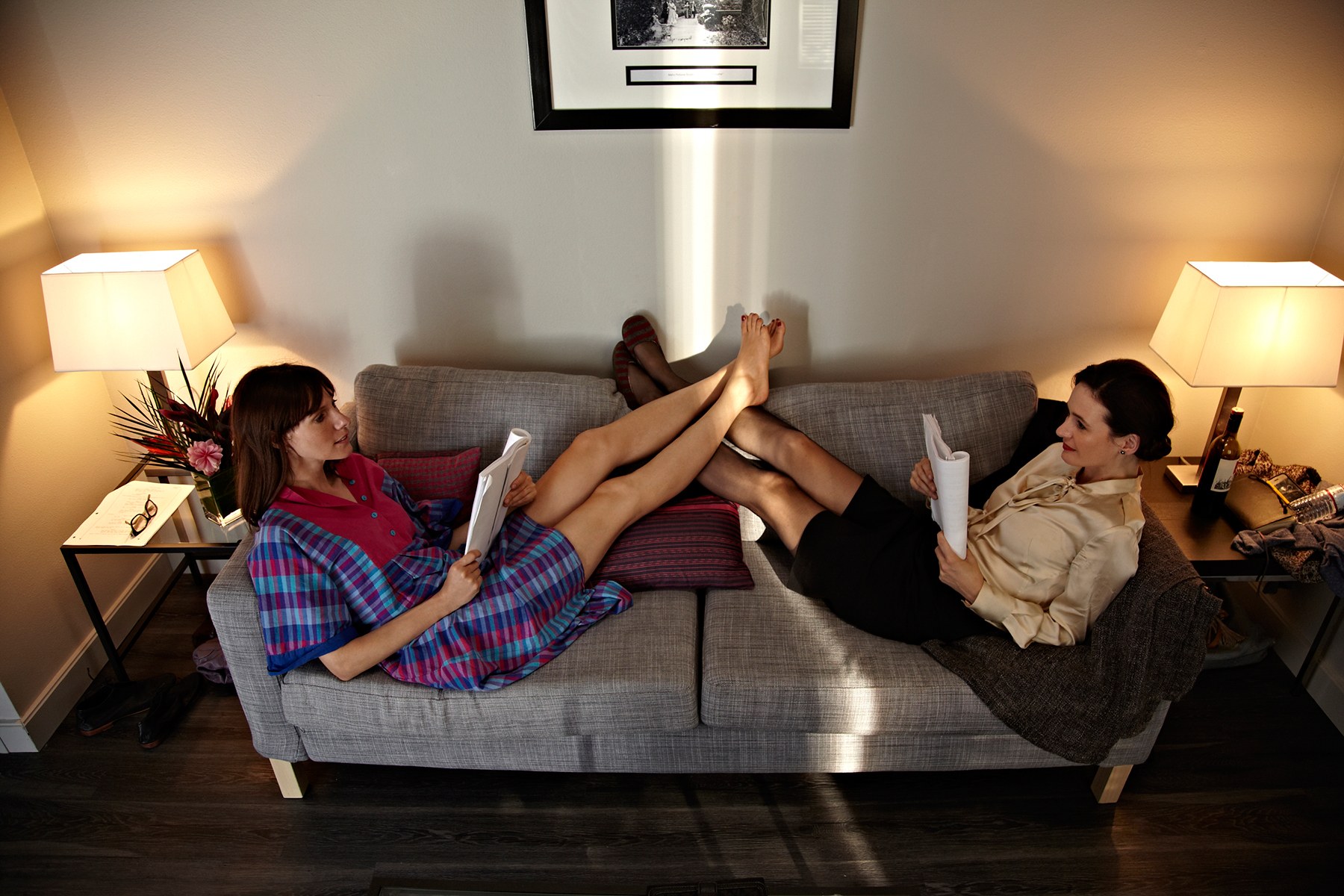
It must be a joy going on set and seeing such a familiar, friendly face?
It’s amazing. Totally. Or the fact that she’s doing so much press for this film, endless. Last night we were in the same hotel, so we shared a bed and were talking until we went to sleep, it’s a dream. She’s like a wife.
There are excellent cameos in here, from the likes of Zadie Smith and Martin Amis – how did they come to be involved?
Emily knew Zadie vaguely, and I’d met her a couple of times at parties. So I asked if we could go out for dinner and I asked her, and I tried to make her laugh a bit because I didn’t want her to read the script because I was shy, and she said yes, which was amazing. She’s very good friends with Martin Amis so it was easy to go to him. Jonathan Ames I knew very well, so yeah.
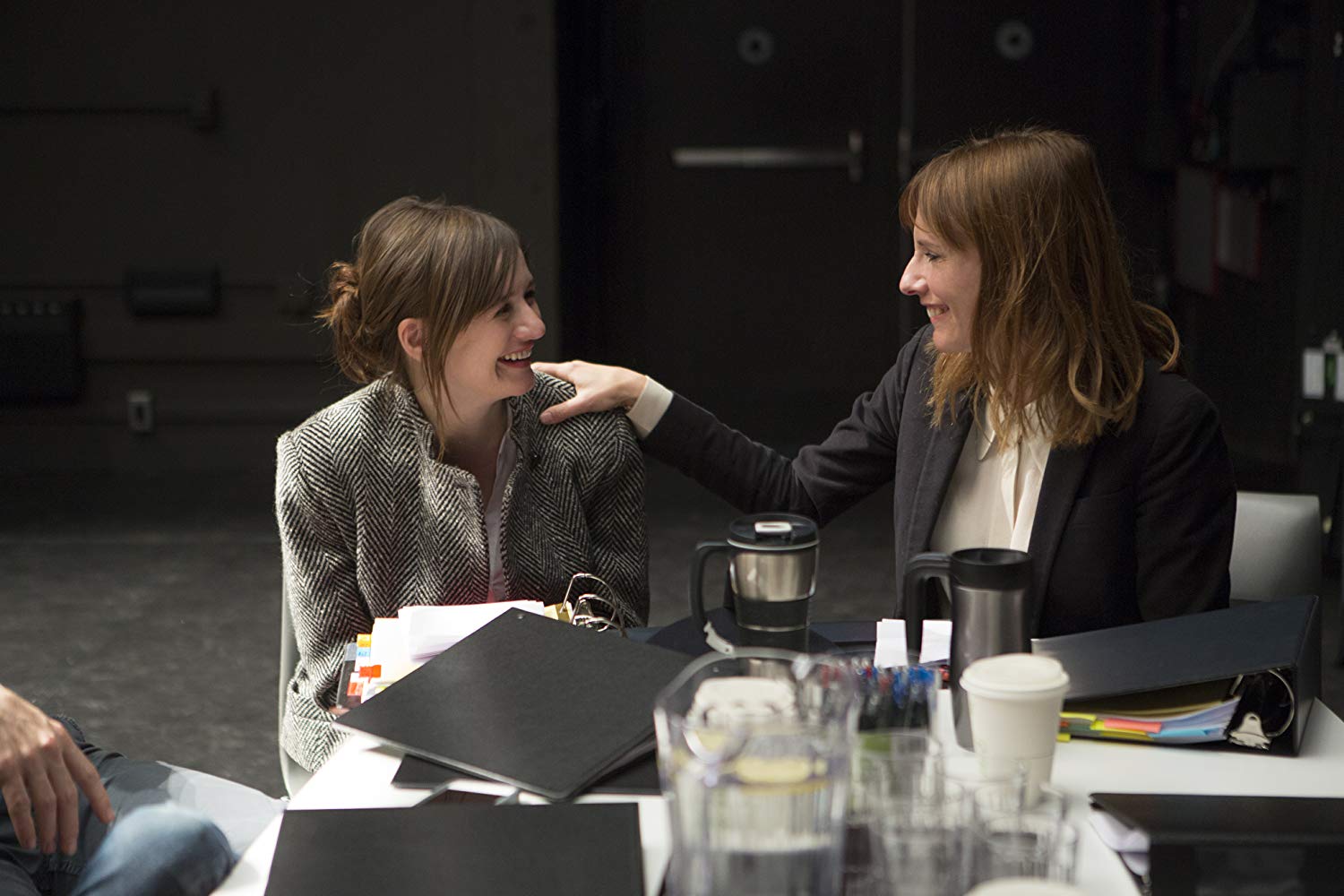
The friendship between Grace and Emily on screen is very mutually beneficial, you feel like they’re learning from each other. I was going to ask what do you think Grace learns from Em – but actually I’m more interested to know what you think Em learns from Grace, and just generally, what can we take from those younger than us?
That’s such a good question, and I think there’s so much we can learn. I’m so impressed, and this is a sign of getting old, but girls just aren’t defined by whether boys fancy them. There isn’t such a feeling of wanting to impress men, which I find really cool. The boys are much more okay with being vulnerable with admitting how they feel, and there’s a sort of openness, a fluidity about everything, their sexualities, their genders, what they want to do, how they want to be perceived. There’s also a self-protection that I’ve noticed, not such a sense of duty. I feel very impressed by young people, and for young women I feel like things really are changing, there’s a political responsibility, particularly in America, a social awareness. Also the way children are brought up in America is tat they’re treated as adults. I’m still of that ‘don’t speak until you’re spoken to’ mindset, whereas there’s a sort of feeling that they’re a part of it all, they’re just as important, they understand what’s going on in the world.
So what’s next?
Emily and I are writing another Doll & Em thing called Please Be Frank, then I have to get on with writing my next film.
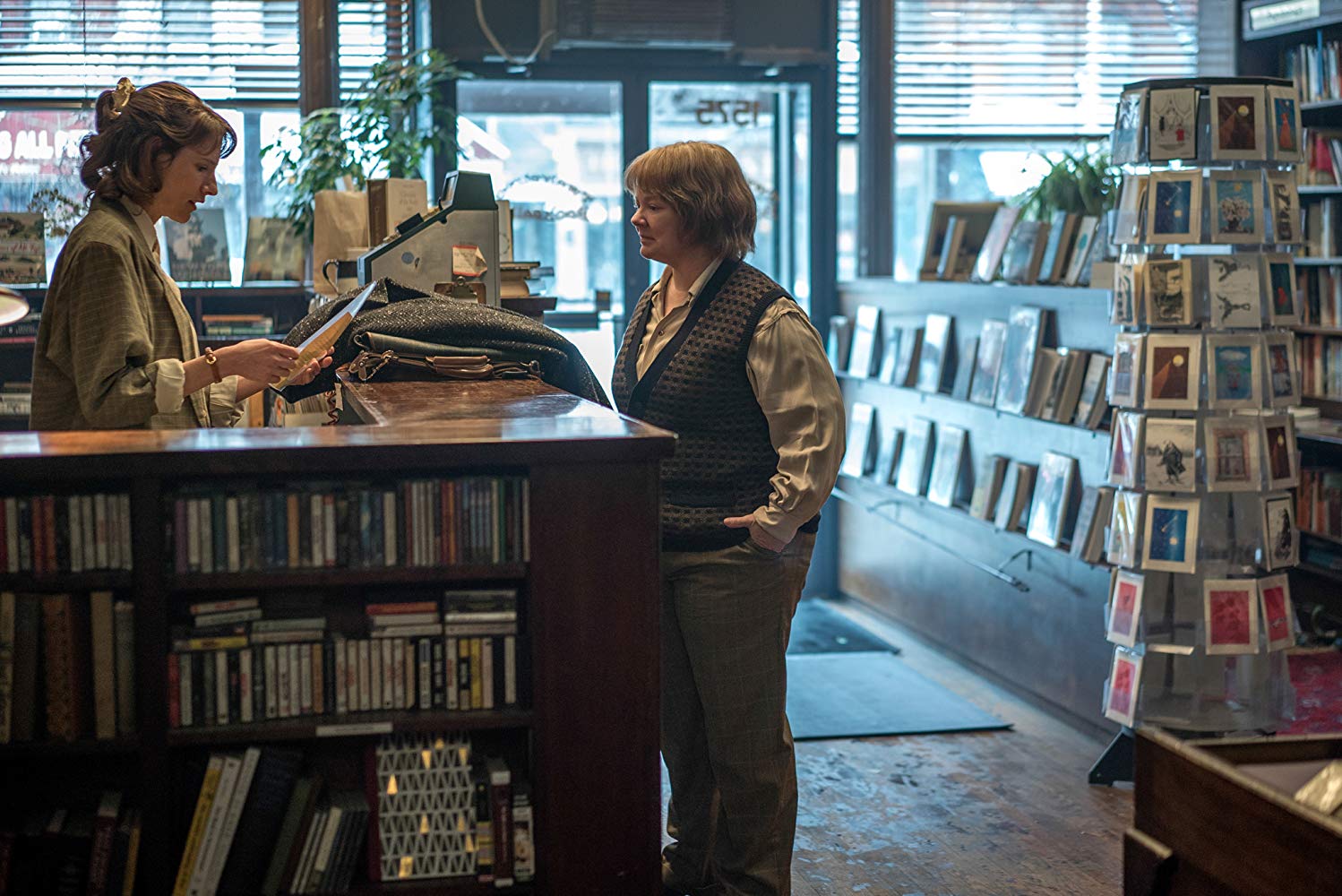


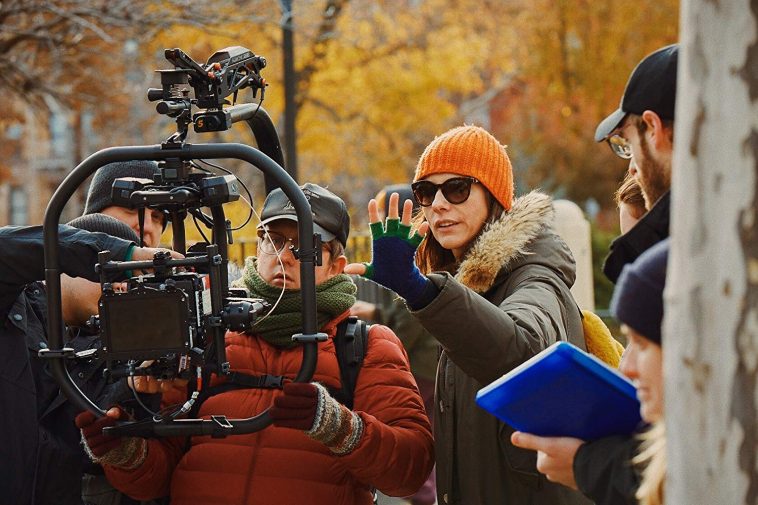

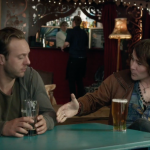
















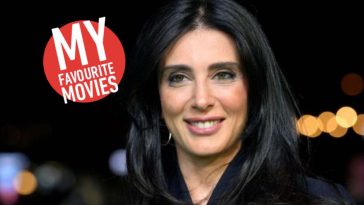






Leave a Comment